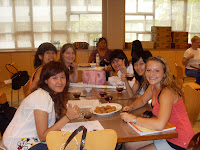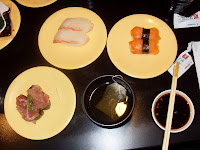
I’m Ashley Payne, the International Programs Student Advisor for the College of Engineering. It’s my job to help all the Engineers at Oregon State hear about how they can go abroad! In my life as a student I am a fifth year senior in Civil Engineering, and I am living proof that if you are an engineering major you CAN study abroad! During my sophomore year I studied for the full academic year at the University of Sussex in Brighton, England (almost directly south of London on the English Channel). While I was there I continued to study civil engineering, completing many of my prerequisites for my professional program like statics, dynamics and my physics series. I absolutely loved studying abroad, so when I arrived back it seemed natural for me to help other Beavers to go abroad!
The most popular programs available to students in the College of Engineering are Danish Technical University, and University of Nottingham.

Danish Technical University (DTU) is located just outside of Copenhagen in Lyngby. Despite being in Denmark the primary language of instruction is English. The modern architecture and research labs on campus may make you feel like you stepped into the future, but Copenhagen may have you feeling like you stepped into history. From winding cobbled streets to cutting edge modern architecture Copenhagen is a diverse mix of the old and the new. DTU is the premier technical university in Scandinavia with research in nearly every field of engineering. Anyone in the College of Engineering can attend DTU (yes, even you, nukes).

University of Nottingham is located in Nottingham, England. Yes, as in Sherwood Forrest, Robin Hood and the Sherriff of Nottingham. While it may have taken Robin Hood days to get to London, it now only takes about two hours by train. But if you feel like staying in Nottingham there is no shortage of things to do in this city of 270,000 people. From the best shopping outside of London, to world class sports facilities, and contemporary arts you are sure to find entertainment in Nottingham. Located on a park campus Nottingham University is one of the best engineering universities in the UK. The following engineering disciplines are available at Nottingham University: Biological, Chemical, Civil, Electrical and Computer, Environmental, Industrial, Manufacturing, Mechanical Engineering and Construction Engineering Management, Engineering Physics. Also, as of the 2009/2010 academic year any OSU student may participate in this program.
There are many other programs available to engineering majors including the University of Cantabria in Santander, Spain, and the Tecnologico de Monterrey in Monterrey, Mexico, both of which are Spanish Language programs. There are also programs available in German and French.
Employers have expressed to the College of Engineering that while OSU produces very competent engineers with strong communication skills we are often lacking in intercultural communication skills and international experience. Having that international experience is a great way to set yourself apart from other graduates when applying for a job or a graduate program.
Whether you want to differentiate your resume or just live in another country, studying abroad is not only possible it is the experience of a lifetime!
If you are an engineer interested in studying abroad contact Ashley at coe.study-abroad@oregonstate.edu.







 Kayla Whittington is a senior in HDFS and Education. She studied in Taiwan in Fall 2008 on a
Kayla Whittington is a senior in HDFS and Education. She studied in Taiwan in Fall 2008 on a 